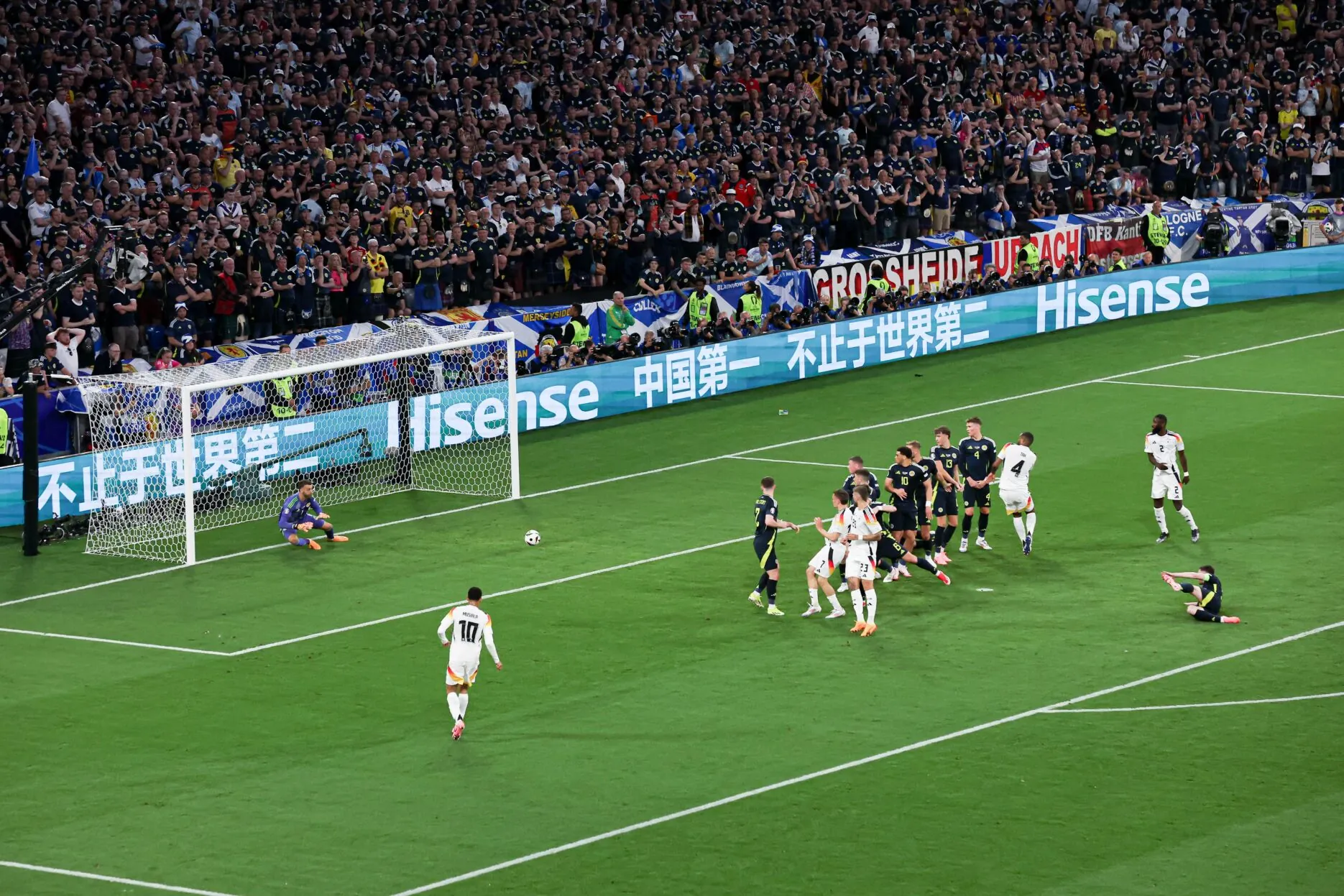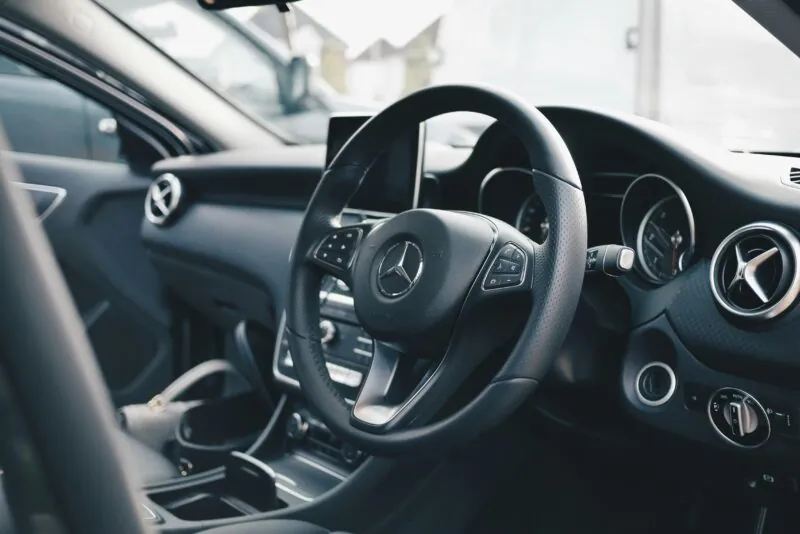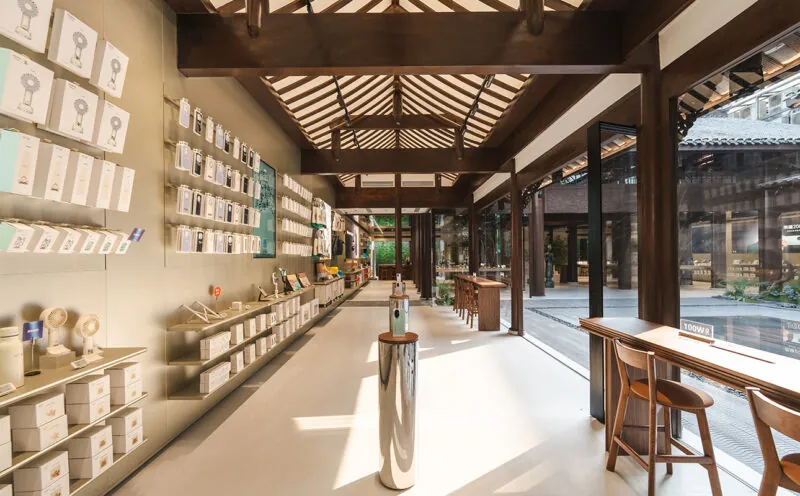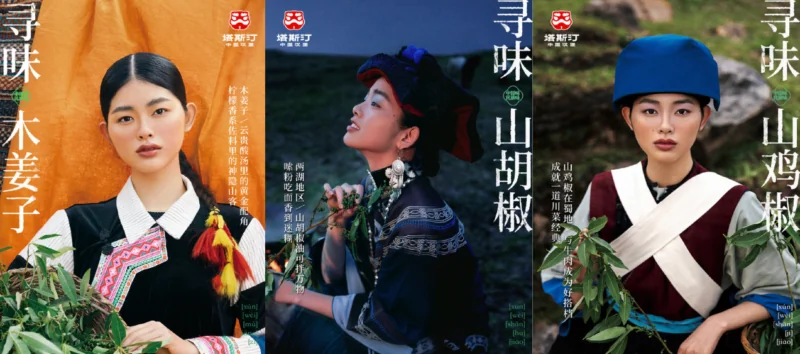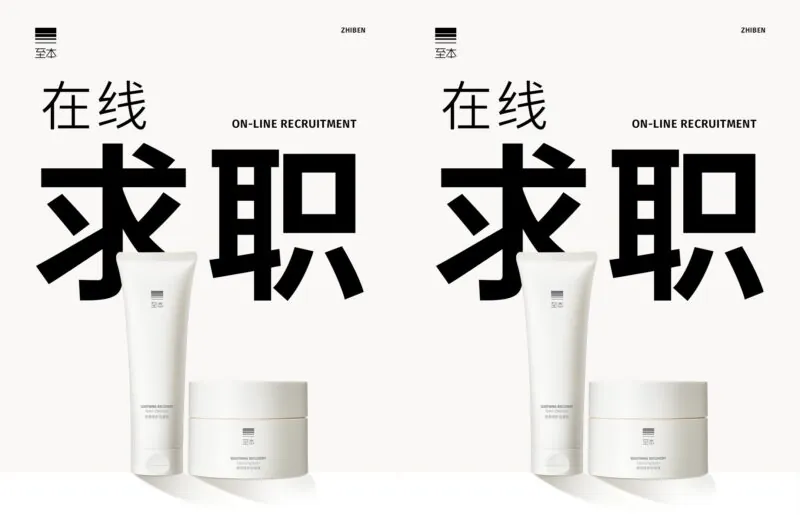On 14 June, the UEFA EURO 2024 Football Championship kicked off in Germany. Most Chinese fans noticed the Chinese billboards on the sidelines, and the Weibo topic #Why Chinese billboards dominate the screen at the UEFA Euro# (欧洲杯中文广告牌为何霸屏) garnered 1.7 million views. Upon comparison with the live view, it can be observed that, except for a small portion of Chinese language advertisements, most of them in the TV broadcast are virtual.
This means that the same Chinese sponsors are displayed in English on the scene, while the related product advertisements appear in Chinese in the live TV broadcast. These Chinese adverts are “China-specific” virtual real-time adverts, marking the first time the competition has introduced virtual board replacement (VBR), which replaces specific adverts displayed on LED billboards in stadiums with ads tailored to the target market.
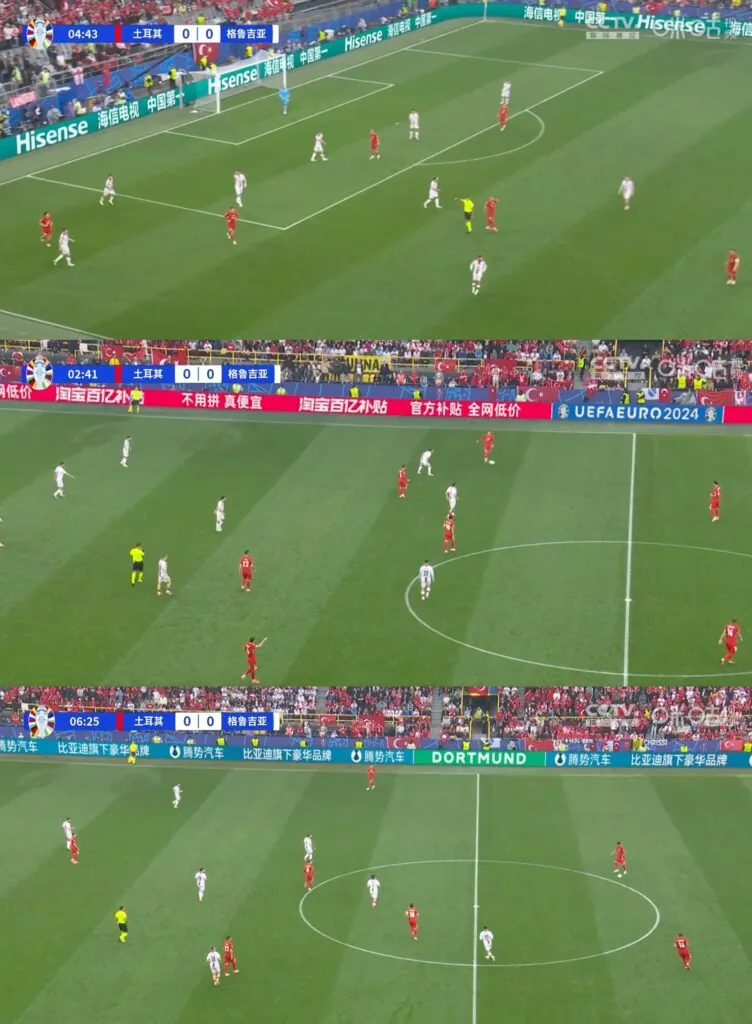
VBR technology is not cutting-edge, and its principle is similar to green screen keying commonly used in broadcast TV production. However, this is the first time it has been formally used in the UEFA European Championship. In this tournament, only the host position of the broadcast camera used virtual real-time advertising technology. Therefore, during the game, when the broadcast camera switched to close-up shots, careful viewers could spot instances of these special adverts.
However, Chinese fans are not the only ones to see these special adverts. According to UEFA, this year’s championship provides four sets of broadcast signals: the international public signal, and exclusive signals for the host country Germany, China, and the United States.
A total of eight Chinese adverts were produced for Chinese consumers: Ali, Alipay, Atos, Booking.com, BYD, Hisense, visitQatar, and Vivo. Hisense was the only one that took a more traditional approach, as the Chinese characters displayed in its adverts were placed globally and didn’t utilise virtual technology. Additionally, for social impact reasons, the official gambling partner of this year’s UEFA Europa League, Betano, has been uniformly replaced with a foundation and official UEFA public service announcements in the Chinese broadcast signal using virtual advertising technology.
The “China Special” adverts are the customised rights and benefits of the brands that have sponsored the UEFA European Championship through technical means for the Chinese market. Their English-language adverts for the world are displayed normally, and there is no phenomenon of “Chinese brands can only be seen in Chinese broadcasts”. Take Taobao as an example, the “Taobao 10 billion subsidies” that concern Chinese people cannot be read or received by foreigners. With the help of virtual advertising technology, the rights of exposure can be better utilised.
This year’s competition has 13 main sponsors at the level of “global partners”, of which Chinese companies account for five: Hisense, Vivo, BYD, AliExpress, and Ant Group (including its sub-brands). These five brands represent more than a third of the official sponsors, setting a new record for Chinese companies sponsoring the tournament. So far, China has been the largest exporter of Euro sponsors for two consecutive years.
It is worth mentioning that this year, BYD succeeded Germany’s Volkswagen to become the European Championship’s car sponsor, marking the first time a Chinese car brand has achieved this. With Germany as the host, German media reported that “the European Championship prioritises profits over patriotism” – highlighting the surprising news that BYD, rather than Mercedes-Benz or Volkswagen, is serving as the car sponsor for the tournament.




